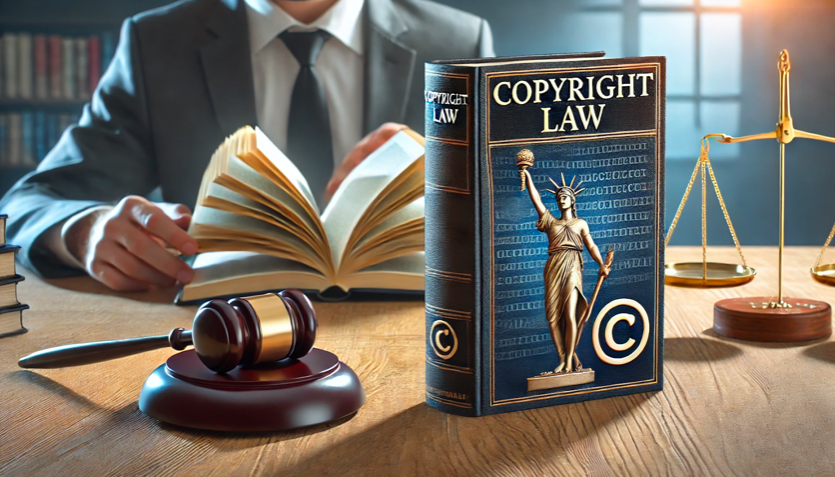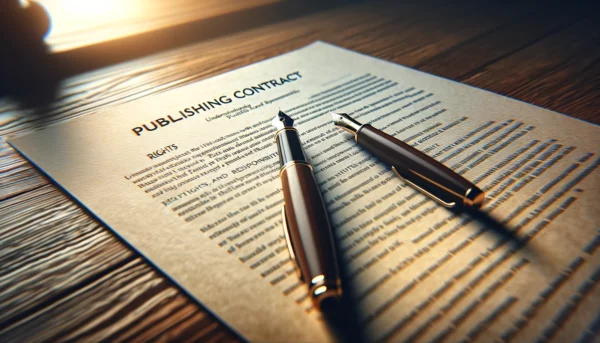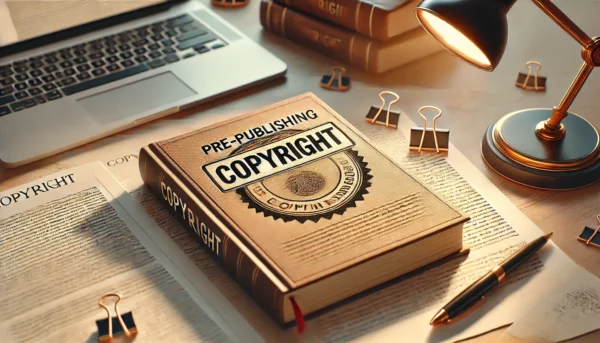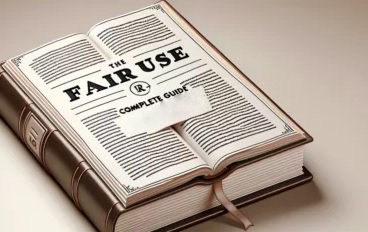Self-publishing has revolutionized the literary world, giving authors unparalleled control over their work. But with this freedom comes a maze of legal responsibilities and risks that can be daunting. Navigating the legal landscape isn’t just good practice; it’s essential for protecting your work, reputation, and financial interests.
Authors must contend with copyright laws, privacy issues, defamation risks, and contractual obligations. Missteps can lead to costly disputes, like copyright infringement lawsuits or defamation claims. Understanding these legal aspects empowers you to make informed decisions throughout your self-publishing journey, from creation to marketing.
This article will guide you through the essentials of navigating legal book issues, from copyright registration and intellectual property, privacy and defamation, to the complexities of contracts. Equipping you with the knowledge to safeguard your work and confidently navigate the legal challenges of self-publishing a book.
Copyright Law and Intellectual Property
Copyright law grants authors and creators exclusive rights to their original works, including the right to reproduce, distribute, perform, display, and create derivative works. In the context of self-publishing, copyright law is particularly significant as it protects your literary creations from unauthorized use by others. This legal protection is automatic the moment your work is fixed in a tangible form, such as written down or saved digitally. However, registering your copyright with the appropriate government agency can offer additional legal benefits and protection.
Steps to Protect Your Creative Expression and Intellectual Property
- Register Your Copyright: Although copyright protection is automatic upon creation, registering your work with the U.S. Copyright Office or the relevant agency in your country provides a public record of your ownership and grants you the ability to seek statutory damages and attorney’s fees in case of infringement.
- Include Copyright Notices: Place a copyright notice on your work, including the symbol ©, your name, and the year of publication. While not legally required, this serves as a clear indicator of your ownership and can deter potential infringers.
- Use Watermarks and Digital Rights Management (DRM): For digital works, incorporating watermarks and DRM can help prevent unauthorized copying and distribution. These tools make it more difficult for others to use your work without permission.
- Maintain Detailed Records: Keep thorough records of your creative process, including drafts, notes, and any correspondence related to your work. These records can serve as evidence of your authorship in case of a dispute.
- Monitor Your Work: Regularly search for unauthorized copies of your work online. Tools like Google Alerts can help you stay informed about where your work is being used. If you find unauthorized use, contact the infringing party with a request to remove the content or seek legal action if necessary.
Common Copyright Issues and How to Address Them
One of the most common copyright issues is plagiarism, where someone copies your work without permission or proper attribution. If you discover plagiarism, you can send a cease-and-desist letter or file a Digital Millennium Copyright Act (DMCA) takedown notice to have the infringing content removed.
Another common issue is called unauthorized use. This includes using parts of your work in other publications, websites, or media without your consent. Address unauthorized use by contacting the infringer and requesting removal or compensation. Legal action may be necessary if the infringer does not comply.
Fair use allows limited use of copyrighted material without permission for purposes such as criticism, comment, news reporting, teaching, scholarship, or research. Misunderstanding the limits of fair use can lead to infringement. Educate yourself on what constitutes fair use and consult with a legal professional if you are unsure.
Creating derivative works based on your original content without your permission is another common issue. Ensure your contracts and licenses explicitly state whether derivative works are allowed and under what conditions.
Tips for Avoiding Copyright Infringement
- Conduct Thorough Research: Before using any content that is not your own, ensure it is either in the public domain, licensed for your use, or qualifies under fair use.
- Obtain Permissions and Licenses: When in doubt, seek permission from the copyright holder or obtain the necessary licenses to use the material. This is especially important for images, music, and substantial excerpts of text.
- Create Original Content: Whenever possible, create your own content. This reduces the risk of infringement and ensures that your work is truly unique.
- Use Copyright-Free or Licensed Material: There are numerous resources for copyright-free or licensed materials that you can use legally. Websites like Creative Commons offer content that is free to use under certain conditions.
- Consult Legal Experts: If you have any doubts about the legality of using certain content, consult with a copyright attorney or legal expert. They can provide guidance tailored to your specific situation and help you navigate complex copyright issues.
Privacy and Defamation Concerns
In the realm of self-publishing, privacy claims, and defamation risks are significant legal concerns that authors must navigate carefully. Privacy claims arise when an individual believes their personal information has been exposed without consent, while defamation involves the publication of false statements that harm someone’s reputation. Both issues can lead to costly legal battles, financial damages, and reputational harm for authors.
Privacy claims typically center around the unauthorized use of someone’s private information, such as disclosing sensitive personal details or publishing private facts that are not of public concern. Defamation, on the other hand, is categorized into libel (written defamation) and slander (spoken defamation). For a defamation claim to succeed, the plaintiff must generally prove that the statement was false, damaging, and made with a certain level of fault (negligence or malice).
Legal Implications of Writing About Public Figures and Private Individuals
Writing about public figures and private individuals comes with different legal implications. Public figures, such as celebrities or politicians, have less privacy protection under the law due to their public roles. They must prove actual malice in defamation cases, meaning the author knew the statement was false or acted with reckless disregard for the truth. This higher standard is intended to balance free speech with protecting reputations.
In contrast, private individuals have a greater expectation of privacy and need only prove negligence in defamation cases, making it easier for them to win lawsuits. When writing about private individuals, authors must be especially cautious to avoid disclosing private information or making defamatory statements.
How to Mitigate Risks
- Verify Facts: Ensure that all statements about individuals, especially private figures, are factually accurate and verifiable. Double-check sources and avoid relying on hearsay or unverified information.
- Obtain Consent: When including private details about individuals, seek their consent beforehand. This can help prevent privacy claims and show that you acted responsibly.
- Use Disclaimers: Clearly state when characters or events are fictional or inspired by real events. This can help differentiate between fact and fiction, reducing the risk of defamation claims.
- Avoid Sensationalism: Resist the temptation to exaggerate or sensationalize details for dramatic effect. Stick to the facts and present information in a balanced and fair manner.
Taking these precautions not only safeguards your interests but also upholds the ethical standards of responsible authorship.
Contracts and Agreements
In self-publishing, understanding the various contracts and agreements is crucial for protecting your rights and interests. Unlike traditional publishing, where contracts are often handled by publishers, self-publishing requires authors to navigate these legal documents independently. For small businesses, understanding small business law is essential for both new and existing business owners to mitigate legal risks and ensure compliance.
Key contracts in self-publishing include:
- Publishing Agreement: Outlines the terms between the author and self-publishing platform or service provider.
- Distribution Agreement: Specifies the terms for distributing the book through various channels, such as online retailers and bookstores.
- Service Contracts: Include agreements with editors, cover designers, and marketing professionals.
- Licensing Agreements: Cover the use of third-party content, such as images, quotes, or other materials.
Important Clauses to Include in Publishing Contracts
When drafting or reviewing publishing contracts, certain clauses are essential to protect your interests:
- Grant of Rights: Clearly define what rights you are granting to the publisher or service provider, including print, digital, and audio rights. Ensure you retain the rights you need for future use.
- Term and Termination: Specify the duration of the contract and conditions under which either party can terminate the agreement. Include provisions for reversion of rights upon termination.
- Payment and Book Royalties: Detail the payment structure, including advances (if any), royalty rates, and payment schedules. Ensure transparency in royalty calculations and reporting.
- Editing and Approval: Include clauses that give you final approval over editorial changes, cover design, and marketing materials.
- Dispute Resolution: Outline procedures for resolving disputes, such as mediation or arbitration, to avoid costly litigation.
- Confidentiality: Protect sensitive information related to your work and publishing arrangements.
Advice on Negotiating and Understanding Contracts
- Read Carefully: Take the time to thoroughly read and understand every clause in the contract. Look out for terms that may affect your rights or financial interests.
- Seek Legal Advice: Consider hiring a lawyer with experience in publishing to review contracts and provide advice. This investment can prevent costly mistakes.
- Negotiate Terms: Don’t be afraid to negotiate terms that don’t work for you. Key areas to negotiate include rights, payment terms, and termination clauses.
- Clarify Ambiguities: Ensure all terms are clear and unambiguous. If any clause is confusing, ask for clarification or have it rewritten.
- Protect Your Rights: Retain as many rights as possible, especially for future formats and derivative works. Be cautious of granting exclusive rights unless absolutely necessary.
- Plan for the Long Term: Consider how the contract terms will affect your career in the long run. Favor agreements that provide flexibility and allow for future opportunities.
By understanding key contracts and agreements in self-publishing, and by taking a proactive approach to negotiating and protecting your interests, you can navigate the legal aspects of self-publishing with confidence. This knowledge not only safeguards your work but also ensures that you maximize the potential of your self-publishing efforts.
Navigating Legal Research and Resources
Conducting thorough legal research is essential for self-published authors to ensure their work complies with applicable laws and to protect their rights. Several tools and resources can aid in this process:
- Legal Databases: Online databases such as Westlaw, LexisNexis, and Google Scholar provide access to a vast array of legal documents, case law, statutes, and legal journals.
- Government Websites: Official government websites often provide access to statutes, regulations, and legal guidelines. For example, the U.S. Copyright Office and the World Intellectual Property Organization (WIPO) offer valuable resources on copyright law.
- Legal Textbooks and Manuals: Comprehensive legal textbooks and manuals can provide in-depth explanations of legal principles and practical guidance.
- Legal Research Guides: Many universities and law libraries publish legal research guides that offer step-by-step instructions on conducting legal research.
Online Databases and Legal Publications
1. Westlaw and LexisNexis: These subscription-based services provide comprehensive legal research tools, including access to case law, statutes, regulations, and legal periodicals.
2. Google Scholar: This free resource offers access to a wide range of legal documents, including case law and academic articles.
3. HeinOnline: A subscription service that offers access to historical and government documents, law reviews, and journals.
4. SSRN (Social Science Research Network): Provides access to working papers and published articles in the fields of law, economics, and other social sciences.
5. Open Access Journals: Many legal journals are available as open access, providing free access to articles and research on various legal topics.
This proactive approach helps protect your work, ensures compliance with legal standards, and allows you to focus on your creative endeavors with confidence.
Legal Issues Specific to Different Countries
Self-publishing authors must navigate a complex landscape of legal issues that can vary significantly from one country to another. These variations affect book copyright law, privacy, defamation, and other aspects of publishing. Understanding these differences is crucial for authors who wish to reach an international audience, as compliance with local laws in each target market is essential to avoid legal pitfalls and ensure the protection of their work.
Key Differences in Copyright Law, Privacy, and Defamation Internationally
1. Copyright Law:
- United States: Copyright protection is automatic upon the creation of a work and includes the right to reproduce, distribute, perform, and display the work. The U.S. also provides for fair use, allowing limited use of copyrighted material without permission under certain conditions.
- European Union: The EU has harmonized many aspects of copyright law across member states through directives, but differences remain in implementation. The concept of fair use is more restrictive, often limited to specific exceptions like quotation and parody.
- United Kingdom: The UK follows similar copyright principles to the EU but with notable differences post-Brexit. The fair dealing exception in the UK is narrower than the U.S. fair use doctrine.
- China: Copyright laws in China are evolving, with significant enforcement challenges. Authors must be vigilant about piracy and take proactive measures to protect their work.
2. Privacy:
- European Union: The General Data Protection Regulation (GDPR) imposes stringent privacy requirements, affecting how personal data is collected, stored, and used. This has implications for authors who handle personal data of readers, such as email lists.
- United States: Privacy laws are less uniform, with federal laws complemented by varying state laws. The California Consumer Privacy Act (CCPA) is a significant regulation that affects how personal data is managed.
3. Defamation:
- United Kingdom: Defamation laws are relatively strict, with a focus on protecting reputation. The burden of proof lies with the defendant to prove the truth of the statement or qualify for a specific defense.
- United States: Defamation laws favor free speech more than in the UK. Public figures must prove actual malice, making it harder for them to win defamation cases.
- France: Defamation is considered both a civil and a criminal offense, with strict penalties. The right to privacy is strongly protected, impacting how authors write about individuals.
Conclusion and Practical Advice
Navigating the legal landscape of self-publishing is crucial for protecting your work, reputation, and financial interests. This article has explored the essential legal issues self-published authors must consider:
- Copyright Law and Intellectual Property: Understanding copyright law and taking steps to protect your creative expression are fundamental. We discussed the importance of registering your copyright, including copyright notices, and using tools like DRM to safeguard your work.
- Privacy and Defamation Concerns: Authors must be aware of privacy and defamation laws, especially when writing about real people. We highlighted the legal implications of these issues and provided practical advice on avoiding legal pitfalls through careful writing and legal review.
- Contracts and Agreements: We covered the key contracts involved in self-publishing, including important clauses to include and the differences between traditional and self-publishing contracts. Negotiating and understanding these agreements are vital to protecting your rights.
- Navigating Legal Research and Resources: Conducting thorough legal research using various tools and resources, accessing legal advice from libraries, law schools, and attorneys, and staying updated on legal changes are essential practices for self-published authors.
Final Tips for Navigating Legal Issues in Self-Publishing
- Be Proactive: Take a proactive approach to understanding and addressing legal issues. This includes conducting thorough research, seeking professional advice, and staying informed about changes in the law.
- Maintain Detailed Records: Keep detailed records of your creative process, contracts, and communications. This can serve as evidence in case of legal disputes and help protect your rights.
- Use Clear Contracts: Ensure that all agreements related to your work are clear, detailed, and legally sound. This includes contracts with editors, designers, and distributors.
- Respect Others’ Rights: Be mindful of the rights of others when writing about real people or using third-party content. Obtain permissions and respect privacy and intellectual property laws.
While this article provides a comprehensive overview of key legal issues in self-publishing, it is essential to seek professional legal advice when necessary. An attorney specializing in publishing law can provide tailored guidance and help you navigate complex legal challenges. Investing in legal expertise can prevent costly mistakes and ensure that your publishing journey is smooth and legally sound. Endorsements from experts, such as an adjunct professor, can further validate the importance of understanding these legal issues.
If you’re looking to further your understanding of legalities in the world of publishing, click here to read all about creative commons liscenes.
Below are some further reading resources.
- U.S. Copyright Office: (https://www.copyright.gov)
- World Intellectual Property Organization (WIPO): (https://www.wipo.int)
- Authors Guild: (https://www.authorsguild.org)
- Creative Commons: (https://creativecommons.org)








